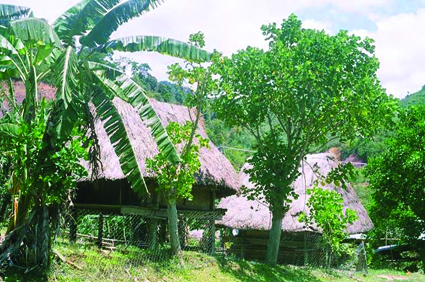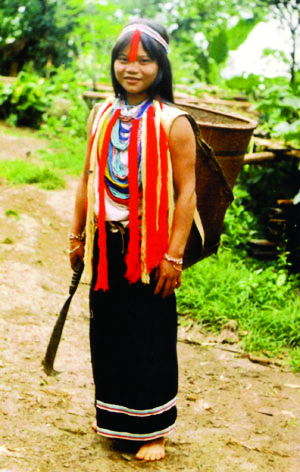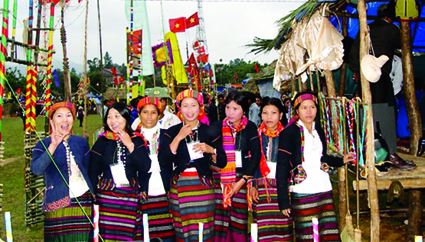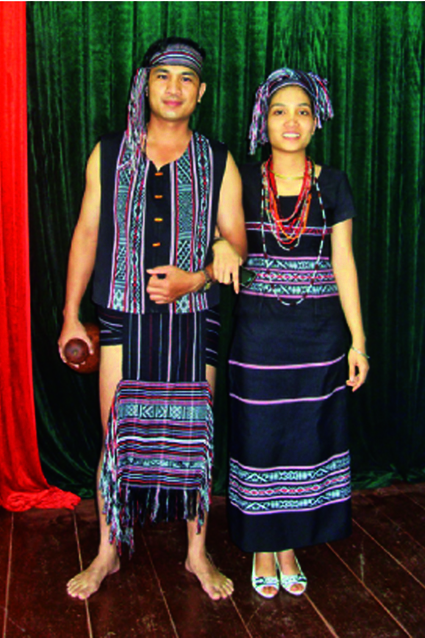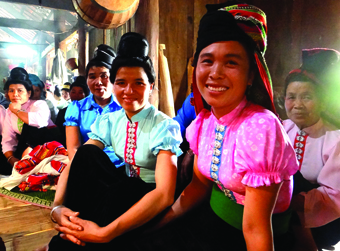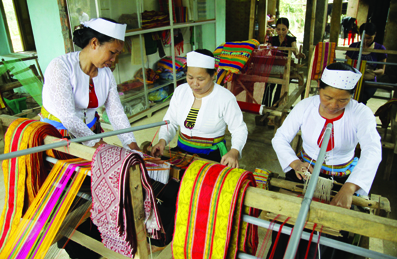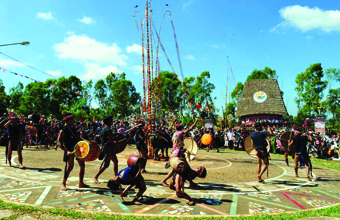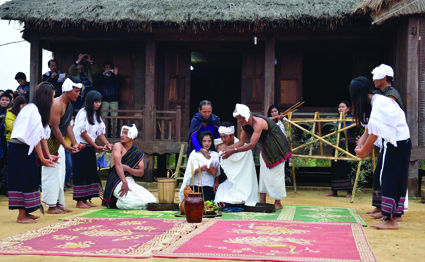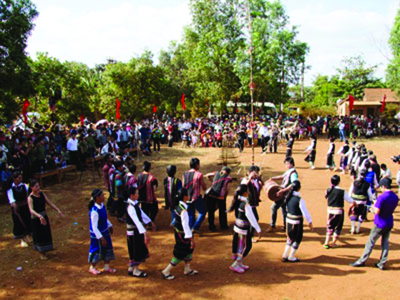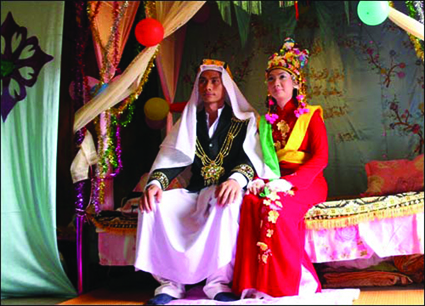>>The “La Chi” customs and practices
>>Adoption custom of the La Chi
Ta Thi Tam
Ethnology Institute
Chin kho mo, which means new rice ceremony, is an original farming ritual of the La Chi, a Thai language group living mainly in the northern mountainous provinces of Ha Giang and Lao Cai with a population of over 13,000.
Every year when rice is about to ripe in the eighth lunar month, the La Chi celebrates chin kho mo in worship of the rice spirit.
The La Chi new rice ceremony is conducted in two stages. The first stage, held at the home of the village head, involves formalities dedicated to Hoang Din Thung who is believed to be the forefather of the group. Coming from former Tu Long commune in Tuyen Quang northern province, chieftain Hoang Din Thung or Hoang Van Dong led an uprising against the oppression of local feudal rulers in the 18th century and was worshipped by the La Chi and some other ethnic groups in the northern mountainous region.
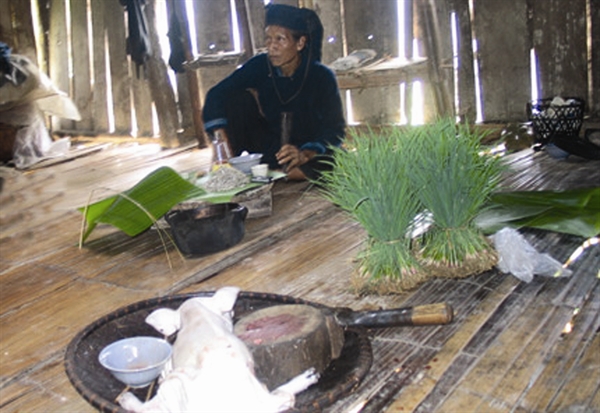 |
| Preparing offerings for the La Chi’s new rice ceremony __Photo: Internet |
The second stage is held the following day at villagers’ homes when rituals dedicated to the rice spirit are conducted.
For the first stage of the ceremony, the village head takes charge of all affairs, from discussing preparations with clan heads and inviting the sorcerer to organizing the community ritual. After discussion with the village head, clan heads will inform their member families for participation in the community’s biggest event in a year. This ritual, which is attended only by heads of clans and families, aims to inform the La Chi ancestor of the community’s gains after a year of hard work and pray for his support for health, prosperity and peace for the whole village. Offerings to the ancestor include wine, sticky rice, boiled chicken and buffalo meat.
The following day, villagers conduct formalities to worship the rice spirit at their own homes. On this day, the wife of the family tidies up the home to welcome the rice spirit before going to the field to pick up the first sticky rice of the harvest to make offering for the ceremony. When going to the field, she must bring along a piece of dry buffalo hide, dry mouse meat, a sickle and a bamboo basket. She is supposed to silently reap and put the rice in the bamboo basket and carry it home without meeting or speaking with anyone on her way for fear that the rice spirit will leave.
From the time this woman cleans up the house to the time she brings the rice home, every family member is supposed to speak La Chi dialect only. The use of other languages is believed to scare away the rice spirit.
Arriving home, the woman chooses four big rice ears and hangs them in the four corners of the kitchen which are believed to be the shelter for the rice spirit. She then cooks some rice to make the offering which must be left on the stove until comes the sorcerer, the only person allowed to conduct the rice ceremony. The remaining rice will be dried on the entresol of the kitchen before being pounded.
Apart from rice, the offerings include a buffalo horn, fish, meat and wine. The family also prepares another buffalo horn together with some food and wine for the sorcerer to conduct the ritual. While reciting prayers to invite the ancestors to return home to enjoy the new rice with the family, the sorcerer holds a ginger tied with a thread. He sometimes pinches out a piece of the ginger and throws it back over his shoulder, which implies that a family ancestor has arrived home. When all the ancestors have returned home at the invitation of the sorcerer, this man will have a meal with the ancestors with the food and drink prepared by the family earlier. Throughout the ritual, the sorcerer must keep the buffalo horn with his feet without letting it touch the ground.
After the praying ritual, family members eat the offerings together. The La Chi has a taboo on offering guests their newly harvested rice which is exclusively reserved for family members. The group believes if a stranger eats new rice of a family, the family will get bad luck.-
